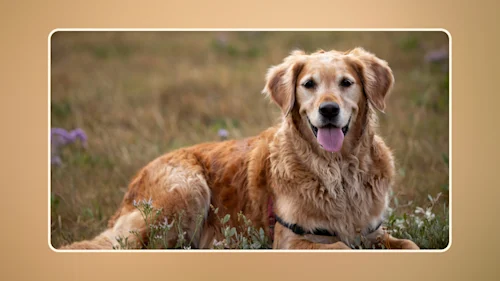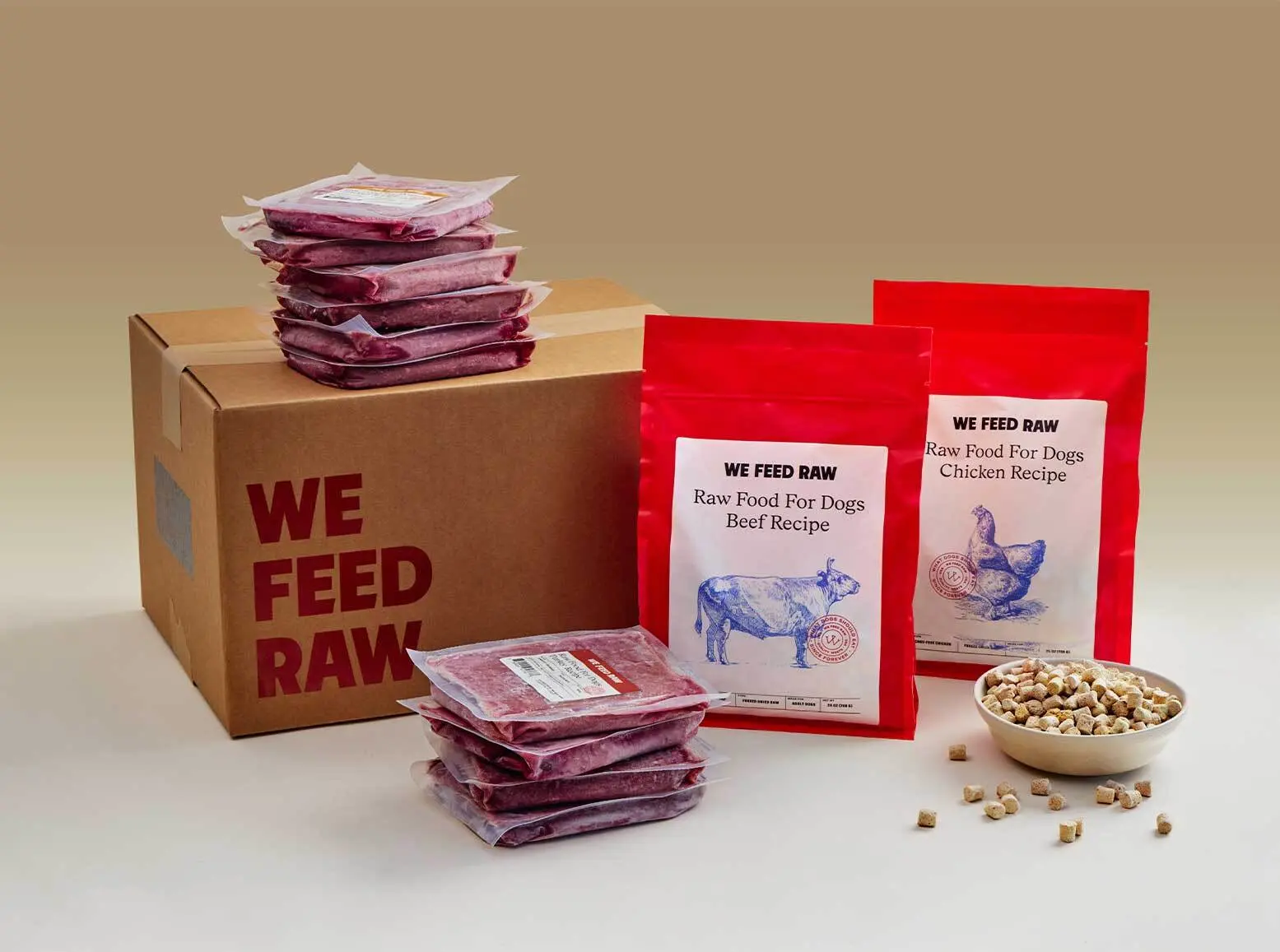
Digestion Timelines: How Long for a Dog to Digest Food?
Table of Contents
- Understanding Digestion in Dogs
- Factors Influencing Digestion Time
- Misconceptions About Dog Digestion
- Tips for Promoting Good Digestion in Dogs
- Addressing Undigested Food in Dog Poop
- How Long Does It Take a Dog's Food to Digest in Different Scenarios?
- Feed Raw for Improved Digestion
- Frequently Asked Questions (FAQs)
- Unleash the Digestive Power of Raw Nutrition for Your Dog with We Feed Raw!
If your dog always needs to poop right after eating, you may be wondering: How long does it take a dog to digest food? It certainly can’t be THAT quickly, right?
While your dog filling up their stomach may trigger their bowels to evacuate, your dog isn’t getting rid of the meal they just ate. Depending on a wide variety of factors, it takes dogs anywhere from 4-12 hours to digest their food.
Let’s dig deep into dog digestion to learn more about how long it takes dogs to digest food, what factors affect how quickly they digest their food, and what food is most easily digested by dogs.
Understanding Digestion in Dogs
Why is good digestion so important for dogs? About 70-90% of a dog’s immune system resides in their gut, so a healthier gut tends to be linked to a stronger immune system.
What Is Digestion?
According to News Medical, “Digestion refers to the breakdown of food into smaller components that can be absorbed into the bloodstream.”
Digestion involves two intertwined processes:
•Mechanical digestion refers to the breakdown of food into smaller pieces, especially via chewing
•Chemical digestion refers to the process where enzymes and acids further break food down into compounds that can be absorbed by the intestines
Your dog’s entire digestive system includes their mouth, esophagus, small and large intestines, rectum, and anus, with additional help from the pancreas and liver, which produce other fluids and compounds that help break down food into nutrients that are small enough to be absorbed.
How Long Does it Take for a Dog to Digest Their Food?
The entire digestion process, from eating food to pooping, usually takes from 4-8 hours, but it may take as long as 12 hours. The length of time it takes a dog to digest their food varies based on many factors, including the dog’s age, size, breed, exercise routine, gut microbiome, and diet.
Heavily processed foods (like kibble) take longer to digest than raw dog food, which dogs’ digestive tracts are perfectly optimized to process.
How Is Dog Digestion Different from Human Digestion?
Compared to humans, dogs have “slower gastric emptying in the fed state, faster small intestine transit, and higher and more variable intestinal pH.” That’s because dogs are still biologically designed to digest food the same way as their wolf ancestors: by gulping down large meals after a kill, then quickly moving the raw meat through the digestive system before any bacteria or other pathogens can colonize the gut.
Humans take 2-5 days to digest their food fully.
Factors Influencing Digestion Time
Here are some of the main factors that influence how long it takes for a dog to digest their food.
Age
Puppies might digest their food more quickly than the typical adult dog, and senior dogs may digest their food more slowly than younger dogs.
Size and Breed
Smaller dogs may digest their food more quickly than larger dogs, although research is inconclusive about whether there is a solid connection between breed and digestion.
Gut Microbiome
The reason probiotics help humans and dogs alike with their digestion is because beneficial bacteria help break down food in the digestive tract. A healthy gut microbiome includes numerous species of bacteria, each helping in some way with digestion.
Dogs with an unhealthy gut microbiome may take longer to digest their food since they have less beneficial bacteria helping them out.
Type of Food
A recent study showed that frozen raw dog food is easier to digest than freeze-dried raw, mildly cooked food, and kibble. You can learn more about why raw dog food is the best diet for your dog here.
Misconceptions About Dog Digestion
Dogs, and especially puppies, often need to poop shortly after eating. However, that isn’t because their food “went right through them.” It’s actually due to the gastrocolic reflex, where new food entering the stomach triggers the large intestines to eliminate waste they’ve been storing to make room for the new food coming in.
Tips for Promoting Good Digestion in Dogs
Here are some tips for helping your dog have perfect poops on a regular schedule that doesn’t have you stumbling out of bed in the middle of the night to take your pup out.
Hydration
Dogs need about one ounce of water per pound of body weight daily, but all that water doesn’t necessarily need to come from a bowl. While kibble averages only 6-12% moisture, raw dog food averages about 70% moisture. If your dog struggles with their digestion, switching them to a moister diet may help.
Exercise
Getting exercise not only keeps your dog’s muscles and joints moving, but it helps keep their digestion moving, as well. Increasing the length or frequency of your pup’s daily walks or playtime may help with their digestion.
Lack of Stress
Stress probably causes you to experience digestive problems, and the same goes for your dog. Travel, moving, a loved one leaving the home, or even disruptions to their daily routine can stress dogs out and cause diarrhea or constipation.
Probiotics and Prebiotics
Probiotics contain “good” bacteria that help your dog digest their food, while prebiotics feed those good bacteria. If your dog struggles with their digestion, adding probiotics and prebiotics may help.
Raw Diet
Ask any owner of a raw-fed dog, and they’ll tell you that their dog has smaller, firmer, less stinky, and less frequent bowel movements after switching to a raw diet. That’s because raw dog food is the diet dogs are designed to digest. It doesn’t contain hard-to-digest carbohydrates and filler ingredients like kibble, so more food gets digested and less comes out the other end.
In addition to smaller poops and better digestion, other benefits of a raw diet for dogs include more mealtime excitement; a stronger immune system; better weight control; cleaner teeth; softer, healthier skin and coat; and a reduction in allergies.
Addressing Undigested Food in Dog Poop
Dogs’ digestive tracts are perfectly designed for extracting nutrition from muscle meat, organ meat, and bones, but fruits, vegetables, and carbohydrates? Not so much.
You may notice that if you share fruits and vegetables or certain other foods with your dog, they come out looking about the same as they went in. That’s not necessarily a cause for concern. However, if your dog’s feces frequently contain large amounts of undigested food, you should take them to the vet.
How Long Does It Take a Dog's Food to Digest in Different Scenarios?
Science hasn’t really progressed to the point where we can say, “In this circumstance, your dog will digest their food in 4 hours, and in this scenario, they will digest their food in 8 hours.” Far too many factors go into a dog’s digestion.
However, you may eventually make the connection that your dog likes to poop at certain times of day, and you could try experimenting with when and how often you feed your dog if you want to try to change when or how frequently your dog poops.
Feed Raw for Improved Digestion
Despite some breeds looking nothing like their wolf ancestors, dogs’ digestive systems are still remarkably the same as wolves, and they’re optimized to get the most nutrition with the least amount of waste from raw dog food.
We Feed Raw makes a raw diet as easy as possible by delivering pre-portioned meals to your door. Take our quiz now to get started.
Frequently Asked Questions (FAQs)
How long does it take for a dog to digest food after eating?
It takes a dog anywhere between 4-12 hours to digest their food after eating depending on a variety of factors including the dog’s age, size, activity level, and diet.
How fast do dogs digest food compared to humans?
From eating to pooping, dogs digest their food in about 4-12 hours, while humans take about 2-5 days to digest their food.
How can I tell if my dog is digesting food properly?
If your dog has small, firm stool, they’re properly digesting their food. If their poop is large, squishy, or runny, or if your dog is experiencing constipation, they may be struggling to digest their food.
Unleash the Digestive Power of Raw Nutrition for Your Dog with We Feed Raw!
Unlock the secret to optimal canine health and digestion with We Feed Raw. Just like you, we understand the importance of a well-functioning digestive system for your furry friend. With a diet creatively designed to mirror the natural eating habits of their wild ancestors, your dog can experience the transformative effects of raw nutrition.
Embark on a journey to enhanced digestive efficiency with meals that are tailored for 4-12 hour digestion windows, promoting smaller, firmer, and less frequent bowel movements. Frequent concerns about undigested food in your dog's stool will become a thing of the past as raw diets provide highly digestible and nutrient-rich options that ensure maximum absorption.
Transitioning to We Feed Raw's carefully crafted meals means not only supporting your dog's digestion but also contributing to a more robust immune system, ideal weight control, cleaner teeth, and an overall healthier skin and coat. Plus, you'll notice a newfound vigor during mealtime!
Still unsure how this switch can revolutionize your dog's health? Take our quick quiz to see how cost-effective and effortless it can be to introduce your beloved pet to the multitude of benefits a raw diet offers.
Dive into the world of raw food and witness the remarkable change in your dog's digestive health and vitality. Visit wefeedraw.com now to explore our selection and start the transformation to a happier, healthier canine companion today!

Our Meals Change Lives.
(Theirs + Yours.)
See health improvements from our raw meals in as little as 1 week.
